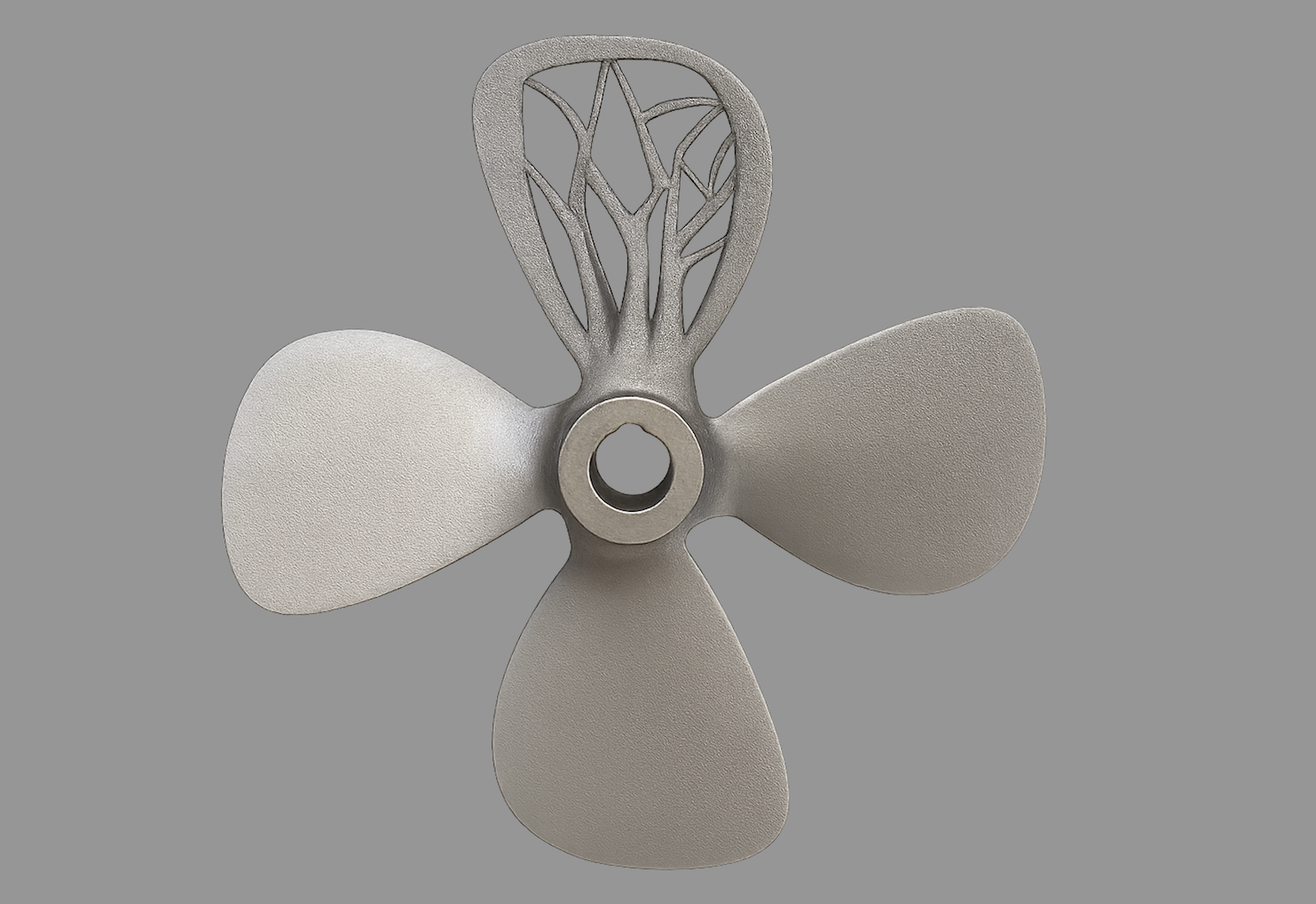UK Government-backed initiative to develop world’s first smart, digitally enabled propeller
The Digitally Enabled Efficient Propeller (D.E.E.P) project will pioneer a new generation of marine propellers manufactured using advanced additive manufacturing (AM) processes, integrated with digital twin technology. This innovation will transform propellers from passive hardware into smart, cyber-physical systems capable of monitoring their performance throughout their operational life.
The D.E.E.P concept has secured funding from Innovate UK, part of UK Research and Innovation (UKRI) through the Clean Maritime Demonstration Competition (CMDC6) to launch the Techno-Economic Feasibility Study of Manufacturing Digitally Enabled Efficient Propellers.
Crucially, the project will investigate the technology readiness of multiple AM processes for the highly regulated and complex maritime sector, benchmark their performance against conventional casting methods, and establish a clear pathway towards classification approval and type certification. This approach will ensure that the project not only delivers technical innovation but also creates a credible framework for industrial adoption and regulatory compliance.
Led by Enki Marine Ltd, the consortium brings together world-leading expertise: Stone Marine Propulsion (design and market validation), TWI (materials testing and manufacturing processes), DEEP Manufacturing Ltd (manufacturing processes and production scaling), Authentise (digital thread and AI-driven monitoring), ASTM International (standardisation and certification), and Newcastle University (hydrodynamic modelling and validation).
Peter Richards, CEO of DEEP Manufacturing, said: “DEEP Manufacturing is delighted to collaborate with world-leading organisations in the maritime, technology and standards sectors to further the development and deployment of advanced applications in Additive Manufacturing.
“As a pioneer in the field of Wire Arc Additive Manufacturing (WAAM), we have consistently demonstrated leadership in translating emerging technologies into practical, real-world solutions. Through the D.E.E.P project we look forward to applying our proven expertise and technical knowledge to support the advancement of innovative manufacturing practices that further helps to drive transformation within the industry.”
The D.E.E.P project began in September 2025, with the first phase focusing on evaluating AM processes. Subsequent stages will validate the demonstrator on Newcastle University’s research vessel, with the long-term aim of enabling type approval and scaling production for commercial adoption by the global fleet.

